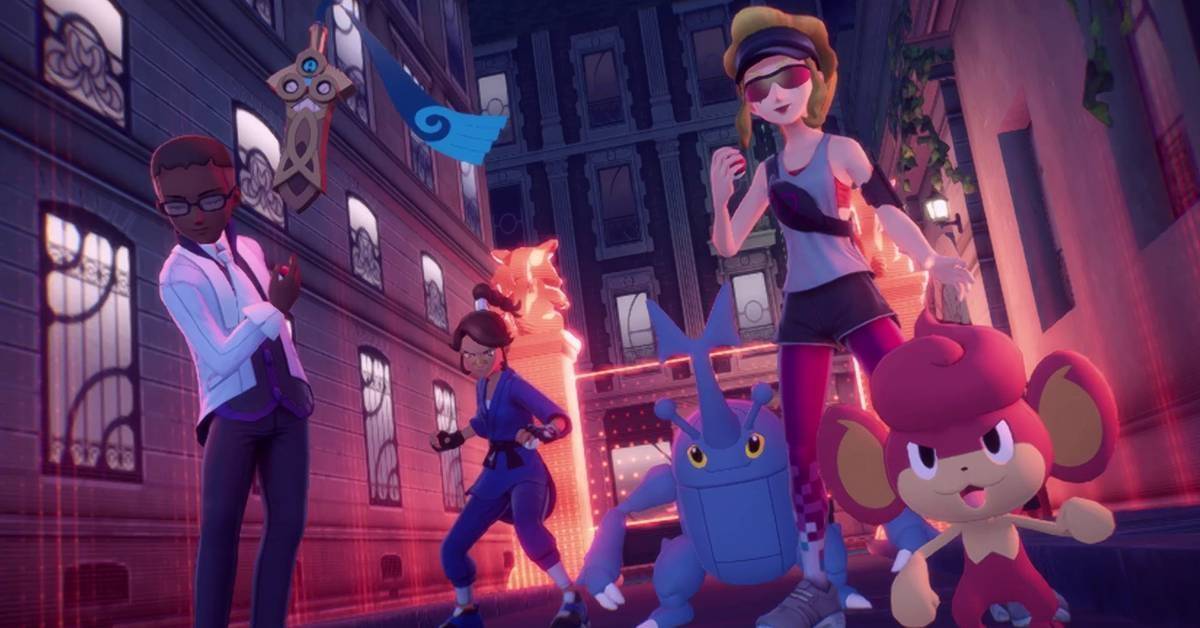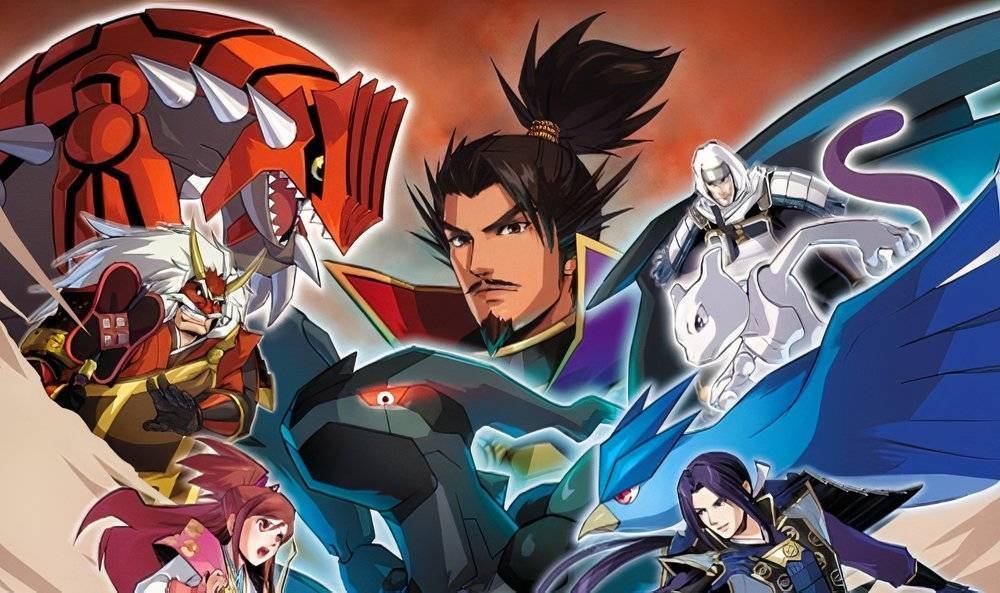Pokémon Legends: Z-A is Cool, But Have You Played Pokémon’s Weirdest Spinoff Lately? A Deep Dive Into the Franchise’s Most Experimental Titles Amidst the Z-A Hype
Popular Now
 Fortnite
Fortnite
 Stumble Guys
Stumble Guys
 Counter-Strike 2
Counter-Strike 2
 Genshin Impact
Genshin Impact
 Minecraft
Minecraft
 Black Myth: Wukong
Black Myth: Wukong
 Roblox
Roblox
 Rust
Rust
 Geometry Dash
Geometry Dash
 Brawl Stars
Brawl Stars 
The anticipation for Pokémon Legends: Z-A is at a fever pitch, especially with the game’s release and the promise of the upcoming Mega Dimension DLC, which introduces the Mythical Pokémon Hoopa as a key story element and unlocks the full potential of Mega Evolution. Early reviews have been overwhelmingly positive, with the title’s overhauled battles and dense, dynamic Lumiose City exploration on the Nintendo Switch platform—specifically noting the enhanced performance on the Nintendo Switch 2—marking it as a significant evolution for the franchise. The game is already being hailed as one of the best Pokémon titles on the Switch. However, for a franchise that has been thriving for nearly three decades, the core RPGs are only one part of the story. Beneath the surface of the main series and the immense Pokémon GO success lies a treasure trove of the franchise’s most bizarre, inventive, and often forgotten Pokémon spinoff games.
The enduring appeal of the Pokémon brand ensures that any new mainline or Legends title, like the hotly debated Z-A, dominates the news cycle and drives high-value search queries (high CPC keywords) in the video game industry. Yet, true fans and competitive gaming enthusiasts know the real innovation often lies in the periphery. These oddball titles offer glimpses into what the world of Pokémon can be when divorced from Gym Leaders and Elite Four challenges. From a critical perspective, these experimental titles deserve renewed scrutiny, especially as we consider the future direction of Game Freak’s output.
The Most Experimental Pokémon Games: A Critical Retrospective
While Pokémon Legends: Z-A is rightly praised for its fresh take on action-RPG mechanics and its focus on a singular, evolving urban environment—a genuine gaming experience milestone—it still operates within the well-defined Legends framework established by Arceus. The truly fascinating titles are those that ventured entirely off the beaten path, leveraging the Pokémon IP for completely unexpected genres. This retrospective focuses on those weird, yet often critically lauded, ventures.
The Strategy Crossover: Pokémon Conquest (Pokémon + Nobunaga’s Ambition)
In a move that surprised the entire global gaming market, the 2012 release of Pokémon Conquest for the Nintendo DS fused the creature-collecting phenomenon with the intricate, turn-based historical strategy of Koei Tecmo’s Nobunaga’s Ambition. This tactical RPG required players to command a warlord in the Ransei region, with each character bonding with a specific Pokémon. The game’s depth, tactical battles, and surprisingly engaging narrative earned it high marks, proving that the Pokémon formula could be adapted successfully to a Fire Emblem-style tactical environment. For gaming hardware enthusiasts who appreciate deep strategic gameplay, Conquest remains an essential, though often overlooked, title.
The Full-Motion Video Oddity: Pokémon Channel
Perhaps the pinnacle of ‘weird,’ the 2003 GameCube title Pokémon Channel was essentially an interactive television viewing and life simulator. Players interacted with a Pikachu, watching programs such as the news (hosted by a Slowpoke, naturally) and shopping. The game was less about battling and more about building a relationship and exploring a domestic slice-of-life in the Pokémon world. While not a commercial powerhouse, its sheer surreal nature and unique use of the GameCube’s connectivity features (specifically with Ruby and Sapphire) make it a curio worth revisiting for its historical context in console gaming history.
The Classroom Companion: Learn with Pokémon: Typing Adventure
Bundled with a physical Nintendo Wireless Keyboard, this 2011 Nintendo DS game, Learn with Pokémon: Typing Adventure, was less a game and more an educational tool. Players were tasked with correctly typing the names of over 400 Pokémon as they appeared on screen to capture them. The novelty of the keyboard accessory and the unapologetically straightforward educational premise underscore the franchise’s willingness to embrace any genre or learning objective, no matter how niche. It’s a testament to the versatility of the IP, even if its monetization strategy was limited by the specialized hardware requirement.
 The Enduring Legacy of Mystery Dungeon and Snap
The Enduring Legacy of Mystery Dungeon and Snap
While the previous examples border on the truly bizarre, other major spinoff series, such as Pokémon Mystery Dungeon (PMD) and Pokémon Snap, have found a dedicated following and represent the more successful adaptations of the IP.
- Pokémon Mystery Dungeon: The PMD series transforms the player into a Pokémon, navigating randomized, roguelike dungeons. Titles like Explorers of Sky are often cited by fans as having some of the most emotionally resonant and best-written storylines in the entire franchise. This successful blending of the roguelike genre with deep character development offers a compelling contrast to the traditional trainer narrative, proving that RPG gameplay can thrive without human protagonists.
- New Pokémon Snap: The 2021 sequel brought the beloved N64 photography simulator into the modern era with stunning visuals and an expanded world. It’s a game about observation, patience, and appreciation of the creatures in their natural habitats, offering a relaxing, high-fidelity experience that stands apart from the typical catch-’em-all loop. The success of Snap highlights the market demand for non-combative, immersive Pokémon experiences.
Pokémon Legends: Z-A and the Future of Spinoff Innovation
The immediate conversation is, understandably, dominated by Pokémon Legends: Z-A. With the game receiving an impressive Metacritic score of 82 and its highly anticipated release on the horizon, the focus remains on the Legends formula—specifically, the revamped real-time battle system and the captivating Lumiose City redevelopment narrative. The inclusion of widespread Mega Evolution has been a major talking point, satisfying a fervent fan desire and showcasing a commitment to reintroducing popular mechanics in fresh ways.
However, the existence and periodic success of the weirdest spinoffs should serve as a continuous reminder to The Pokémon Company and its developers. These games prove that the IP’s strength is not just in its core battle system but in the sheer breadth and depth of the Pokémon world itself. For the future of gaming and high-return investment in the franchise, continued experimentation in genres like strategy (a new Conquest), simulation, or even a return to the educational space with modern VR/AR integration could unlock entirely new revenue streams and demographics. While Z-A is a certified hit and a triumph of the modernized core experience, the truly exciting prospects are the next left-field ideas that will inevitably become the next beloved, bizarre entry in the Pokémon pantheon. Fans and industry analysts alike should be watching closely not just for the next mainline announcement, but for the next truly strange experiment.










 The Enduring Legacy of Mystery Dungeon and Snap
The Enduring Legacy of Mystery Dungeon and Snap